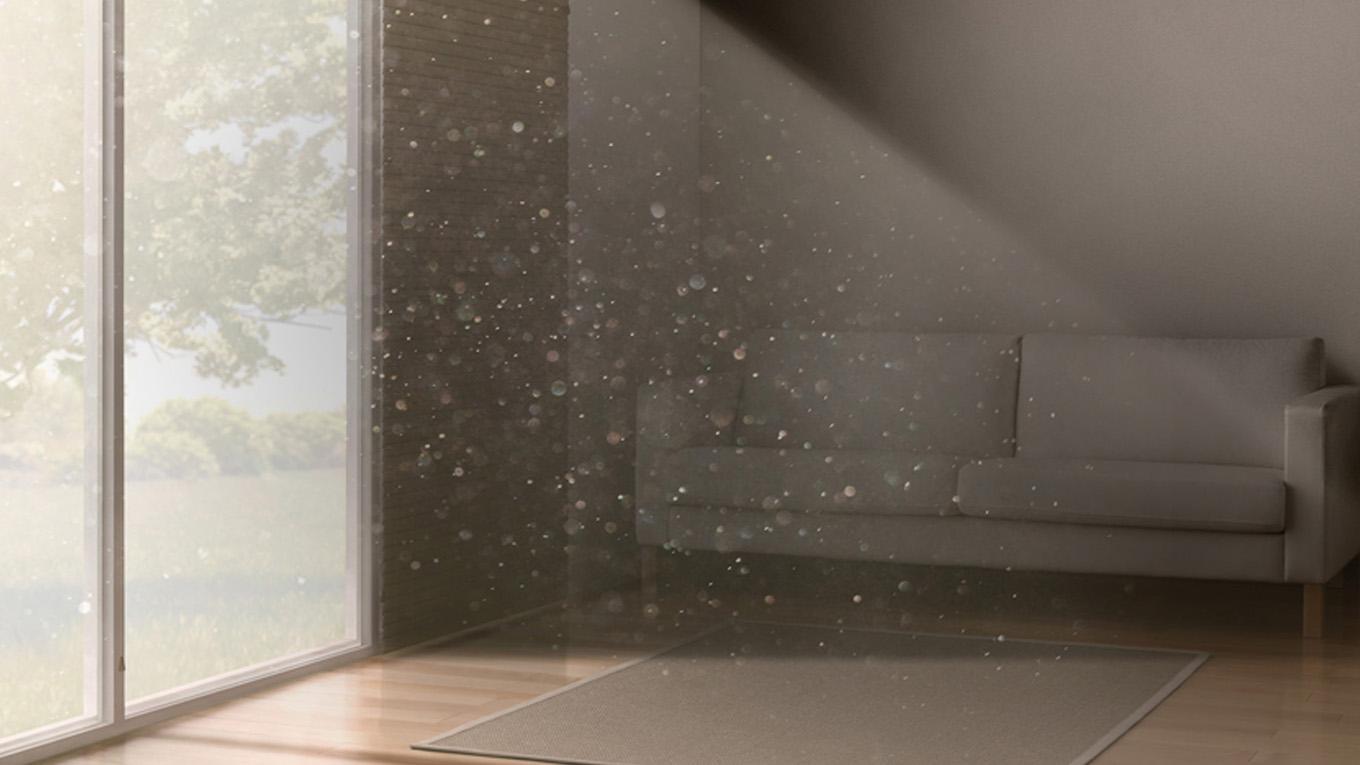Insights | Air Quality | Air Purifiers
What's the difference between an air purifier and a humidifier?
Humidifiers and air purifiers both impact the air you breathe, but they work differently and come with unique benefits. If you’re looking for ways to help improve indoor air and you want to know which option is best for your needs, then read on to understand the differences between an air purifier and a humidifier. We’ll help in deciding which option is ideal for you and your family, plus give you tips on how to get the most from each machine.
Air purifier or humidifier: which one do I need?
Air purifiers
Air purifiers can improve air quality by removing airborne particles and pollutants, and circulating cleaner air. They combat mold and odors, and capture particles including dust, pet dander, viruses, and bacteria. An air purifier doesn't add moisture to the air, as its main function is to filter pollutants.
The two basic elements of an air purifier are a fan and a series of filters, though the specific filtration technology can vary from one brand to another. The fan draws in polluted air and expels clean air, and the filters capture and remove airborne pollutants. Air purifier filters include HEPA filters to remove 99.95% of air pollutants as small as 0.1 microns, an activated carbon filter to remove odors, and a pre-filter to remove larger air contaminants.
Humidifiers
A humidifier adds moisture to the air by emitting water vapor or steam, to help keep relative humidity levels in your home at an optimum level. This can benefit individuals with congestion problems, as target levels of air moisture help create a more comfortable environment. It can also help relieve dry, itchy skin, an itchy throat and aid sleep.
A humidifier consists of a water tank with controls, and water must be added to keep the machine running. It converts this water into a fine mist and expels it into the surrounding air. Humidifiers are best used in dry areas.
How do air purifiers and humidifiers affect your health?
Both air purifiers and humidifiers affect the air quality in your home. Air purifiers draw microscopic particles from the air and trap them in a series of filters. This helps reduce allergens from the home, including mold spores, dust mites, pollen, and pet dander. Dyson purifiers also remove Volatile Organic Compounds (VOCs) – toxic compounds found in some cleaning, disinfecting and cosmetic products.
Humidifiers on their own, without a purifying option, do not remove airborne allergens and instead add moisture to the air. They can help allergy symptoms feel less severe if your nasal passages are dry or irritated. Using a humidifier can help relieve congestion, as well as dry, itchy skin and an itchy throat. But if a humidifier is not properly cleaned, it can develop mold and introduce airborne pollutants.
When to use a humidifier and when to use an air purifier
Humidifiers are typically seasonal devices. That’s because air is drier in the winter when humidity levels can fall.¹ In the summer, indoor humidity levels can rise to over 40%, meaning we’re then in more need of dehumidifiers. Air purifiers, in contrast, are not seasonal. They’re year-round machines as air pollutants are always present indoors, regardless of the season.
Is an air purifier or humidifier better for babies?
Both air purifiers and humidifiers can be beneficial for your baby. Having a humidifier in a nursery helps keep the air at its ideal humidity level of 30-50%. It could help soothe chest and sinus congestion if the main problem is dry air. However, leaving a humidifier on continuously is not recommended, as excessive moisture in the air can leave the nursery susceptible to mold, dust mites and bacteria. An air purifier with the right filters can trap allergens, dust and other ultra-fine particles. It reduces indoor pollutants in your home – so you and your family can breathe cleaner air.
A combined humidifier and air purifier could help with both of these issues.
Air purifier and humidifier in one
If you have dry as well as polluted air in your home, then an air purifier with a humidification function is a good option. These machines clean the air with filters and humidify it before blowing it back into the room.
The Dyson Purifier Humidify+Cool automatically purifies and hygienically humidifies. It uses powerful circulation to purify and humidify the whole room.² Pollutants are captured using advanced HEPA filtration and three sensors constantly monitor your air – reacting to purify and humidify before displaying live air quality reports.
An air purifier and a humidifier play different roles in the air quality of your home. Both improve the state of indoor air, while an all-in-one air purifier humidifier can solve humidity and purification problems. It’s important to choose the option that’s right for your family’s needs.
-
Purifiers
Dyson purifiers capture gases,² allergens* and 99.97% of fine particles.
-
Purifier humidifiers
Automatically humidifies and purifies.
Read more

¹ Met Office (2023) Humidity. Available at: https://www.metoffice.gov.uk/weather/learn-about/weather/types-of-weather/humidity. Accessed May 2023
²Tested for purification coverage in an 81m3 chamber. Tested for humidification coverage in a 41m³ chamber.
Press contacts
-
USA
Emails us at USPR@Dyson.com
1330 West Fulton Street, 5th Floor, Chicago IL, 60607
-
Social media
- Twitter: @dyson
- YouTube: youtube.com/dyson
- Facebook: facebook.com/dyson
- Instagram: @Dyson
- Instagram: @dysonbeauty
- LinkedIn: Dyson
- Pinterest: Dyson Technology




